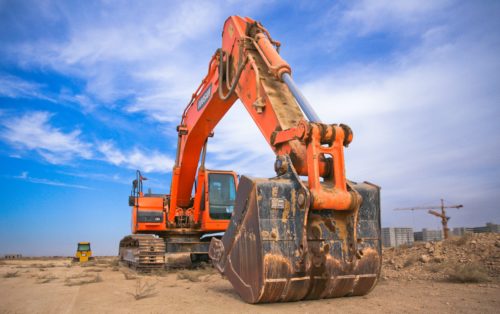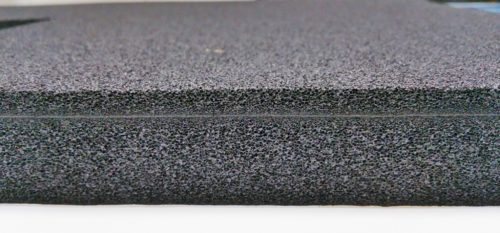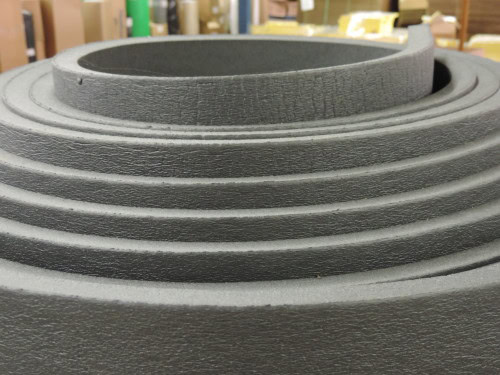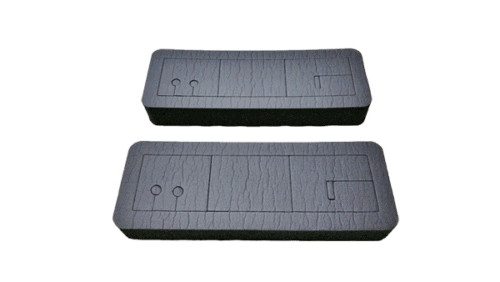The Problem
A heavy equipment original equipment manufacturer (OEM) needed several different types of foam seals for their equipment.
The first supplier they contacted was CGR Products. A widely trusted manufacturer of custom flexible non-metal components, CGR was already on the OEM’s approved supplier list. The seals the OEM was looking to procure required a range of thicknesses, they needed to provide a quantifiable level of noise reduction, and meet a variety of very stringent global specifications. The seals needed to meet all these criteria or they would not be approved by the OEM.
The Challenges
The foam seals the heavy equipment OEM required posed several challenges to the team at CGR Products.
First, some of the seals had to be uncommonly thick. A few of the larger seals had to be up to 90mm thick, which is thicker than the available raw material. The OEM and CGR determined that multiple plies of thin foam could be laminated together to create seals thick enough for their needs. This led to the second hurdle, that any adhesives designed into the seals for laminating purposes needed to be thoroughly tested before manufacturing began.
The adhesive requirements came with its own set of challenges. The parts were going to subject to high and cold temperatures, subjected to UV exposure, and some parts were adhered to low surface energy substrate molded plastics. CGR Products worked diligently to meet the adhesive demands and created several testing samples dedicated to approving the best adhesive options.
The third unique challenge was that the OEM required several rounds of samples, and prototype seals had to pass an array of trials and tests performed by the OEM.
When CGR Products first received the OEM’s request and looked at the requirements, they knew immediately an ideal material for the seals would be Armacell’s Ensolite® foam, known for its exceptional sealing characteristics.
Why Ensolite?
CGR Products ultimately selected Ensolite EF0 and Ensolite FC0) for the project. CGR chose these two materials for two reasons:
1. First, they each meet a wide variety of industrial, manufacturing, and automotive specifications — including the global specifications that the OEM needed to meet.
2. Second, Ensolite EF0 and FC0 foams have excellent physical properties. Essential for the air pocket-filling requirements of the application, they have quick decompression and recovery times — 25% compression deflection values of a maximum of 1.0 psi and 0.4 psi respectively.
The Solution
In order to create the foam seals the heavy equipment OEM required, CGR Products worked with the OEM’s engineering team to select a suitable foam and adhesive based on the customer’s specifications and to develop a satisfactory laminating process to create the required thicknesses. After sending the OEM a selection of samples so they could test the adhesives, CGR Products got the green light and began production based on precise weekly orders from the OEM.
First, the skived rolls of foam were laminated together to create the desired thicknesses, ranging from 5mm to 90mm. Next a Pressure Sensitive Adhesive (PSA) was laminated to the foam to provide a method to attach the part to the customer’s substrate. Lastly the parts were cut using either a die cutting process or by waterjet cutting.
Altogether there were over 100 unique parts required by the customer to be used on multiple pieces of equipment they manufactured. CGR makes multiple shipments each week to multiple plants. Parts are packaged into custom totes, barcoded with custom labels, and shipped with exact quantities in each tote.



